
Throughout the history of the world, human beings have committed acts of war and perpetrated atrocities on other human beings for all manner of reasons. Political and military leaders and their armies have been responsible, over the millennia, for torturing, killing, and enslaving of millions.
The fact that many famous figures in history are deemed responsible for such acts of mayhem does not change history nor lessen the historical importance of other things these people may have accomplished or change their roles in the development of world history. Many of the acts are deemed atrocities by 21st century standards, but they happened. Right or wrong, good or evil, it is what it is.
Over the centuries human beings have become more civilized, educated, and empathetic to the rights and dignity of others. Standards of behavior and values have changed over time – for the better, I believe, although we still have a long way to go.

Stories have it that Christopher Columbus died broke and in jail, but for the most part, the history books still give Christopher Columbus the credit for “discovering” the new world and opening up the Americas to European colonization.
October 12 is supposedly the day Columbus landed on what is now part of the Bahamas. [He never actually set foot on the North American mainland.] The day is celebrated in many countries in the Western hemisphere as well as Spain and Italy under various names, including "Día de la Raza" [Day of the Race], “Día de la Hispanidad” [Day of the Hispanic], Day of the Americas and Discovery Day. It was first celebrated in the US in 1792, the 300th anniversary of the discovery, by the Tammany Society.
Subsequently, there were celebrations of the day in various locations all over the US. In 1866, Italian Americans in New York began celebrating Columbus Day as recognition of their Italian heritage, with which this holiday has been connected ever since. As a result of lobbying by the Knights of Columbus and New York City Italian leader Generoso Pope, October 12 was proclaimed by Congress as a federal holiday in April 1937. [Note: several references said 1934]. In 1971, the US Congress officially designated the date of the annual federal holiday as the second Monday in October.
According to a Senate report to Congress from the year Columbus Day was proclaimed [not clear this means 1934, 1937, or 1971], it is an "annual reaffirmation by the American people of their faith in the future, a declaration of willingness to face with confidence the imponderables of unknown tomorrows.” www.latimes.com/columbus-day
Based on that statement, it appears Congress intended to celebrate the event of the discovery and the introduction of the Western Hemisphere to the Eastern Hemisphere, not specifically Columbus himself.
THE COLUMBUS DAY CONTROVERSY
The earliest opposition to celebrating Columbus Day dates back to the 19th century, before the holiday had any kind of legal status, when anti-immigrant activists attempted to eliminate it because of its association with immigrants from the Catholic countries of Ireland and Italy. Notably, the holiday was opposed by the Ku-Klux-Klan because they believed it increased Catholic influence in the United States.
By Edmund S. Morgan - The Gallery Collection / Corbis
They argue that Columbus Day and other memorializations of Columbus “whitewash the brutal history of of native enslavement and genocide that represent his true legacy … Millions of indigenous people were displaced by Columbus, and between his arrival and the Pilgrims’ arrival in 1620, 90% of the native population died, mostly from diseases brought over from Europe. The remaining natives saw their land and culture destroyed by the violence of white Western colonization.” www.theyucatantimes.com/2018/columbus-day/
It is true that as Governor of the Indies, subsequent to his voyages, Columbus enslaved and mistreated the native populace and even colonists who objected to his policies and methods.
Was he a racist and a rotten, brutal person? Evidence indicates he was. Although his beliefs were not much different than anyone else at the time, he was held accountable for his atrocities by his peers, the Spanish.
Did he introduce slavery and other European injustices to the Americas? No. Slavery and human sacrifice had existed among some of the indigenous peoples of the Americas for hundreds of years before the Europeans got there.
He did come uninvited, invade their territory and conquer the inhabitants? Yes, but isn’t that the pattern of history throughout the world?
Should Columbus bear the responsibility for the European beliefs of the time, including slavery, and for what happened centuries afterward? I supposed that’s what the debate is about.
INDIGENOUS PEOPLES DAY
In my opinion, it is futile to try to assign “blame” for the consequences of any historic event. Understand the motivations and consequences, yes, but not blame. Columbus Day does not have to commemorate the person nor does it celebrate the ultimate outcome of the voyages. It does mark an important event in world history.
Highlighting an event that changed the world, or much of it, is neither a positive or negative comment on the value of the event or what happened subsequently. Remember, nearly all events commemorated by any culture, have their positive and negative impacts.
While the United Nations declared August 9 as International Day of the World’s Indigenous Peoples in late 1994, Berkeley, Calif., had already become the first city in the U.S. to replace Columbus Day itself.
It would take an act of Congress to do away with Columbus Day at the national level, but at least 6 states and 130 cities have officially renamed the holiday as Indigenous Peoples Day, and more are proposing legislation to do the same. Many cities, including Columbus, Ohio, have cancelled the traditional Columbus Day parade. These movement to rebrand Columbus Day and/or eliminate the parades are typically resisted by cities’ Italian-American communities, the original promoters of the holiday.
Photo Credit: Shannon Stapleton/Reuters Photo Credit: (Andrew Burton / Getty Images)
Photo Source: cityroom.blogs.nytimes.com/no-apologies Photo Sourcewww.latimes.com/nation/columbus-day
It would take an act of Congress to do away with Columbus Day at the national level, but at least 6 states and 130 cities have officially renamed the holiday as Indigenous Peoples Day, and more are proposing legislation to do the same. Many cities, including Columbus, Ohio, have cancelled the traditional Columbus Day parade. These movement to rebrand Columbus Day and/or eliminate the parades are typically resisted by cities’ Italian-American communities, the original promoters of the holiday.
Photo source: https://en.wikipedia.org/wiki/Indigenous_Peoples%27_Day Photo source: berkeleyside.com/2017/dump-columbus-day
Perhaps we could should rename the holiday for October 12 as Italian-American Heritage Day, since that’s what it has become to many in the US, and add another holiday on August 9 to celebrate Indigenous Peoples.
I can’t imagine most Americans opposing another national holiday with a day off work.
Sources:
https://www.berkeleyside.com/2017/10/09/berkeley-became-1st-city-dump-columbus-day-indigenous-peoples-day
https://en.wikipedia.org/wiki/Columbus_Day
https://www.latimes.com/nation/nationnow/la-na-nn-columbus-day-why-do-we-still-celebrate-20151012-htmlstory.html
https://www.freetheslaves.net/about-slavery/slavery-in-history/
http://www.historyworld.net/wrldhis/PlainTextHistories.asp?historyid=ac41
https://owlcation.com/humanities/Christopher-Columbus-Trivia
https://badgerherald.com/opinion/2017/10/11/if-you-apply-a-21st-century-standard-to-columbus-then-you-should-to-the-natives-as-well/
https://www.washingtonexaminer.com/why-i-proudly-celebrate-columbus-day
https://www.thoughtco.com/columbus-day-104712
https://www.history.com/topics/exploration/columbus-day
https://www.thoughtco.com/case-against-celebrating-columbus-day-2834598
https://cityroom.blogs.nytimes.com/2008/10/13/at-parade-no-apologies-for-columbus/
https://www.theyucatantimes.com/2018/10/why-are-people-celebrating-indigenous-peoples-day-instead-of-columbus-day/
https://sokokisojourn.wordpress.com/2017/02/24/vermont-senate-house-bills-introduced-for-statewide-indigenous-peoples-day/
https://www.citylab.com/life/2018/10/why-cities-turned-against-columbus-day/572338/
https://www.nytimes.com/2019/04/28/us/columbus-day-indigenous-peoples.html
https://www.thoughtco.com/case-against-celebrating-columbus-day-2834598
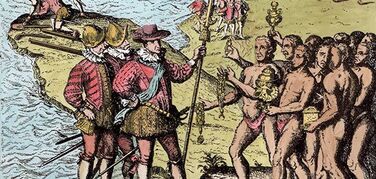
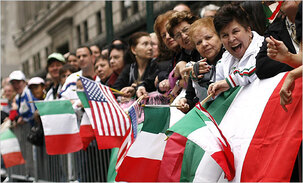
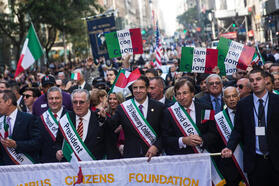
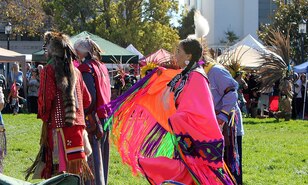
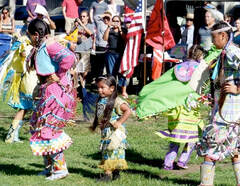
 RSS Feed
RSS Feed